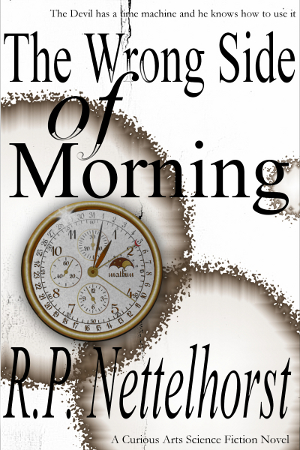If you are a writer, then you should be writing regularly. And when you submit a work for publication, you should be starting to work on your next project. You don’t want to have all your eggs in one basket as it were. Rejections are much easier to handle if you have multiple items out at multiple publishers. Then, if you get a rejection, you still have other works out. And when you do get a rejection, make sure you turn right around and send it out to another publisher. Don’t rework the story, don’t change it—just send it out again. The only time you change a story once you’ve decided to start submitting it is if an editor tells you they want the story, you sign a contract, and he or she asks for changes. If you’re getting paid, then you can start changing stuff to make the editor happy. Unless there’s some important reason not to make a change, there’s no reason to resist the requests. Most of the time, the changes an editor requests are going to be an improvement.
That said, sometimes an editor might be wrong. On two of my books, I resisted suggested changes. One book the changes were being requested by an outside “expert” and they were flat out moronic and wrong. My editor thought they were stupid, too. But given the complex nature of the situation, my editor and I worked at rewriting the offending sentence in such a way that it said what I wanted while not offending the idiot “expert.”
Once you turn in a book, you’ll get back what are called “queries” which will be questions an editor or editors have about things that seem problematic to them. Most of the time these will be useful, if annoying; no one enjoys getting pages and pages of queries. But that’s the nature of the business. However, on occasion, the editor will be flat out wrong, as one questioned a statement in one of my books where I had mentioned that people were vegetarians until after Noah’s Great Flood. His query was “then what about Cain sacrificing the sheep?” Obviously there are two problems with the query. First, Cain didn’t sacrifice a sheep; that was Able. Cain was a dirt farmer. Second, Genesis 9 is rather explicit:
The fear and dread of you will fall on all the beasts of the earth, and on all the birds in the sky, on every creature that moves along the ground, and on all the fish in the sea; they are given into your hands. Everything that lives and moves about will be food for you. Just as I gave you the green plants, I now give you everything. (Genesis 9:2-3)
I pointed this out and the editor acquiesced. This is important to recognize: editors are human and they can make errors–just like you can (which is why you should always listen to editors; most of the time they are going to be right about your screw-ups). So learn to take criticism. Be polite. Be thankful. Make the changes quickly. The years of getting rejection letters will help thicken your hide for when you get published and have to respond to those queries from editors—and worse, quietly enduring the harpoon lances tossed by readers who give you one star reviews on Amazon.
One last thing about rejections: they are not personal. There is no grand conspiracy to keep you from getting published. Don’t write back and don’t post nasty things on your blog. Take it like an adult and move on: keep writing.
 Send to Kindle
Send to Kindle
 A Year With God
A Year With God A Year With Jesus
A Year With Jesus The Bible's Most Fascinating People
The Bible's Most Fascinating People The Bible: A Reader's Guide
The Bible: A Reader's Guide Antediluvian
Antediluvian Inheritance
Inheritance John of the Apocalypse
John of the Apocalypse Somewhere Obscurely
Somewhere Obscurely The Wrong Side of Morning
The Wrong Side of Morning